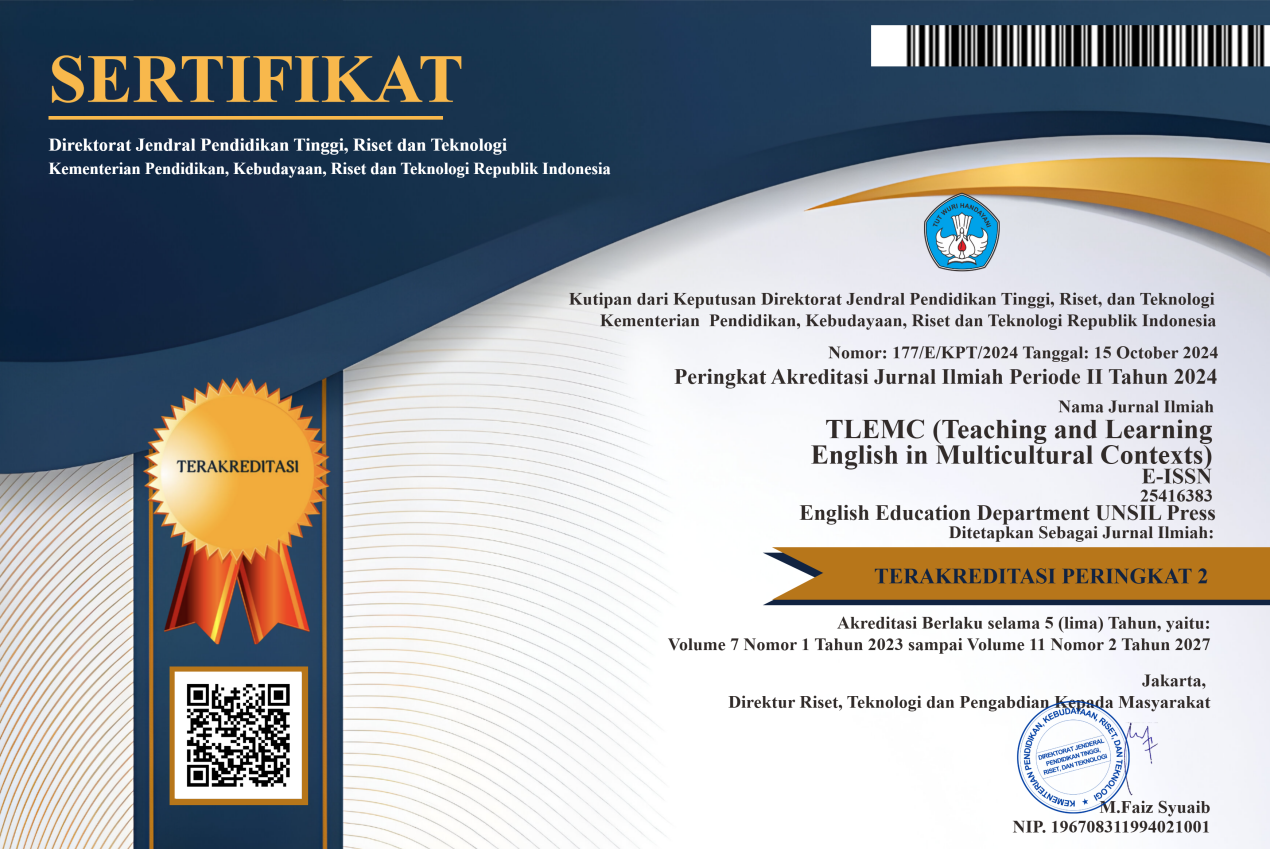Students' Perceptions on E-Learning Use in Fourth and Sixth Semesters of English Department in UMPO
Abstract
This research is qualitative descriptive research with the subject are the fourth and sixth semesters of the English Department at the Muhammadiyah University of Ponorogo (UMPO). Semesters four and six each consist of 16 students. So the total number of respondents was 32 students. The data collections were questionnaires, observation, and interviews to find out student's perception of E-learning use, E-learning element, and the impact of students in E-learning use. The results of the study show that according to students' perception E-learning is effectively carried out in lectures because with E-learning, students can access lecture material wherever and whenever. Besides, by using E-learning, the learning resources and learning activities of students are also diverse because E-learning is equipped with attractive features. One of the E-learning platforms used by English Department lecturers at Muhammadiyah University in Ponorogo (UMPO) is Bebas UMPO (MOODLE), Google Classroom, Edmodo, and Whatsapp. There are some standard features from applications/platforms that used by lecturer: Features from Bebas UMPO are "Forums", "Quizzes", "SCORM packages", "Resources", and "Assignments"; feature from Google classroom is "Classwork"; part from Edmodo are "Chatting," and "Quiz" and feature from Whatsapp is "Group chat". The result of the study is students more active in responding during lecture activities using E-learning.
Â
Keywords: Students' perception, E-learning
Full Text:
PDFReferences
Babo, R., & Ana, A. (2012). Higher Education Institutions and Learning Management Systems: Adoption and Standardization. IGI Global.
Creswell, J. (2009). Research design: Qualitative, quantitative, and mixed methods approach (3rd ed.). Thousand Oaks, CA: Sage.
Fee, K. (2009). Delivering E-Learning A complete strategy for design, application, and assessment. Kogan Page Limited.
Ghavifekr, S., & Rosdy, W. A. W. (2015). Teaching and learning with technology: Effectiveness of ICT integration in schools. International Journal of Research in Education and Science, 2(1), 175–191. https://eric.ed.gov/?id=EJ1105224
Kenning, M. (2007). ICT and Language Learning. Palgrave Macmillan.
Nour, S. M. (2015). Information and Communication Technology in Sudan. Springer International Publishing, Switzerland.
Salkind, N. J. (Ed. . (2008). Encyclopedia of Educational Psychology (1st & 2nd ed.).
Sugiyono. 2018. Metode Penelitian Kuantitatif, Kualitatif, dan R&D. Bandung: Alfabeta.
Zhao, J. (2011). The application of metacognitive strategies into e-learning in English teaching. Proceeding of the International Conference on E-Education, Entertainment and e-Management, IEEE, 67–69. https://doi.org/10.1109/ICeEEM.2011.6137844
DOI: https://doi.org/10.37058/tlemc.v4i2.2038
Refbacks
- There are currently no refbacks.
INDEXED BY:
This work is licensed under a Creative Commons Attribution-NonCommercial-ShareAlike 4.0 International License.
![]()
TLEMC (Teaching and Learning English in Multicultural Contexts)
Program Studi Pendidikan Bahasa Inggris
Fakultas Keguruan dan Ilmu Pendidikan
Universitas Siliwangi
Jl. Siliwangi No. 24 Kota Tasikmalaya - 46115
email: tlemc@unsil.ac.id





